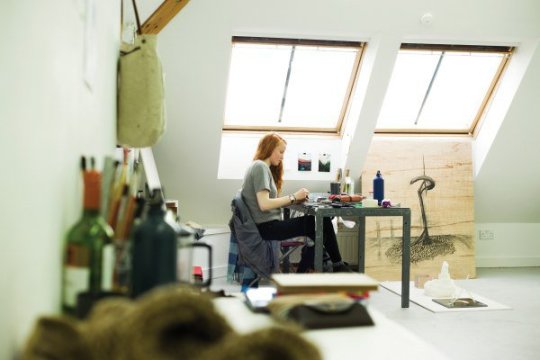In this series of articles, the Educational Technology team will be providing an insight into existing practice using technology for learning and teaching at Falmouth University and various projects being undertaken within the sector. Our previous articles have covered a wide range of topics including Inclusivity, Digital Literacy and Course Design.
This week we’re focusing on Creative Education, a subject the Ed Tech team are more than familiar with. Falmouth is the highest ranked University for arts in many of the University league tables; The Guardian University Guide 2016, The Sunday Times League Table 2016 and Complete University Guide 2017. As such we have experience working with many diverse subjects spanning arts, media, performance and design to name a few.

Additionally the university has a dedicated MA in Creative Education which focuses specifically on educational practice and research being undertaken within the creative arts.
Many of our academic staff have come from professional practitioner backgrounds and bring their own experience of industry to the HE environment. This can make for really exciting interventions where technology and arts combine to create meaningful learning experiences. We’ve recently blogged about some of these current activities, such as Project Tango and Slack for assessment.
Unsurprisingly the abundance of specialist academics allows for diverse approaches to teaching and learning to exist within the University. Working closely with academic teams allows us to have an excellent overall view of the types of teaching practice occurring on modules at Falmouth and their impact on student learning.
Nationally more creative approaches to education have been recognised at other Universities and organisations; MMU promote an open module in creative education and the National Writing Project also host a Connected Learning MOOC.
Both of these example projects recognise the importance of discovery and play as part of creative educational experiences. Children are taught the benefits of discovery through play at a very early age, companies such as Tech Will Save Us introduce coding concepts to children through physical construction of technology. While for adults, Lego advocates its serious play method (LSP) to encourage individuals to creatively engage with concepts and ideas using Lego construction.
From a staff development perspective having a safe constructive environment to experiment and trial creative educational approaches is essential. So pause, reflect and find a creative experience that might work for you in your teaching.
Additional Resources